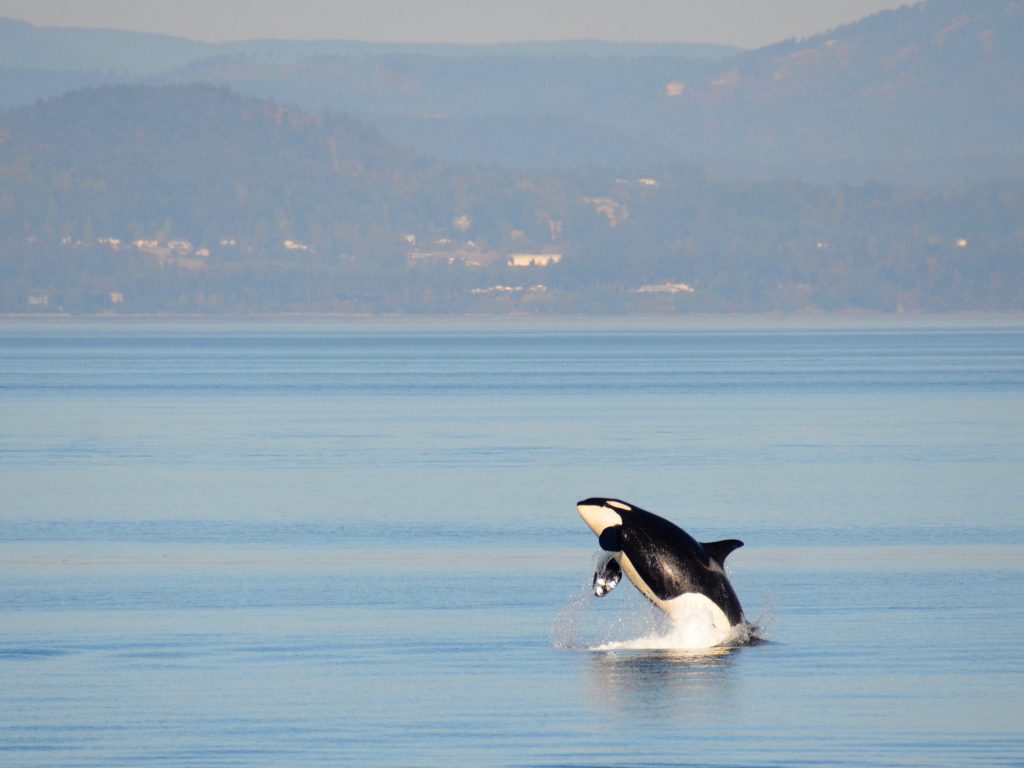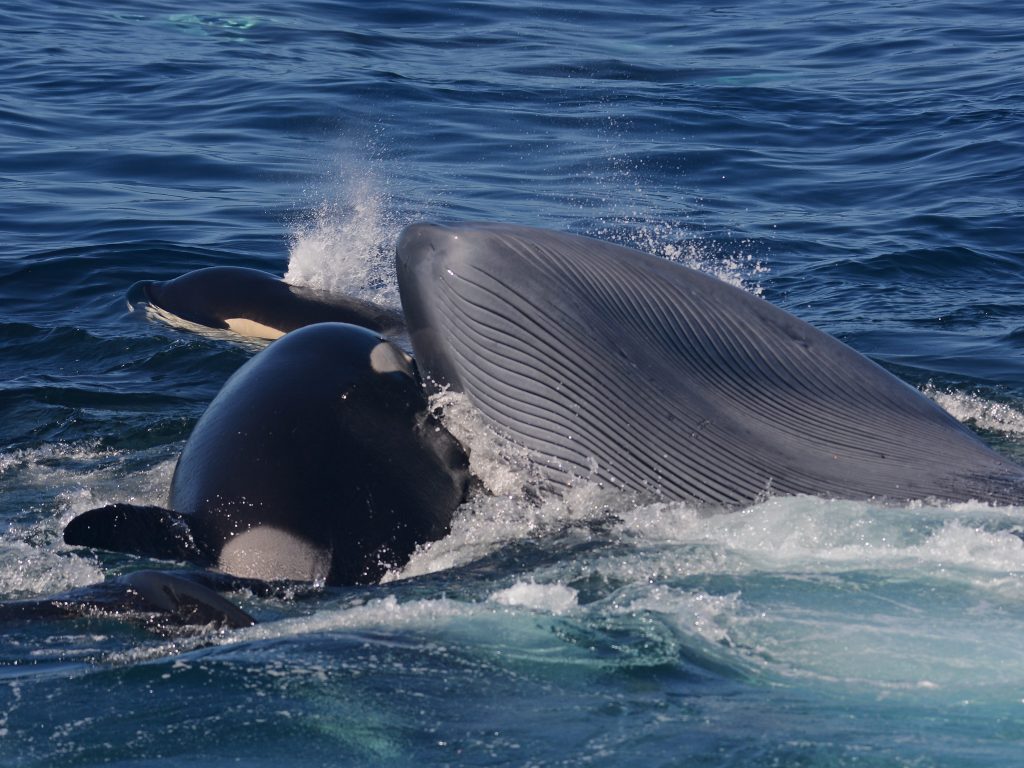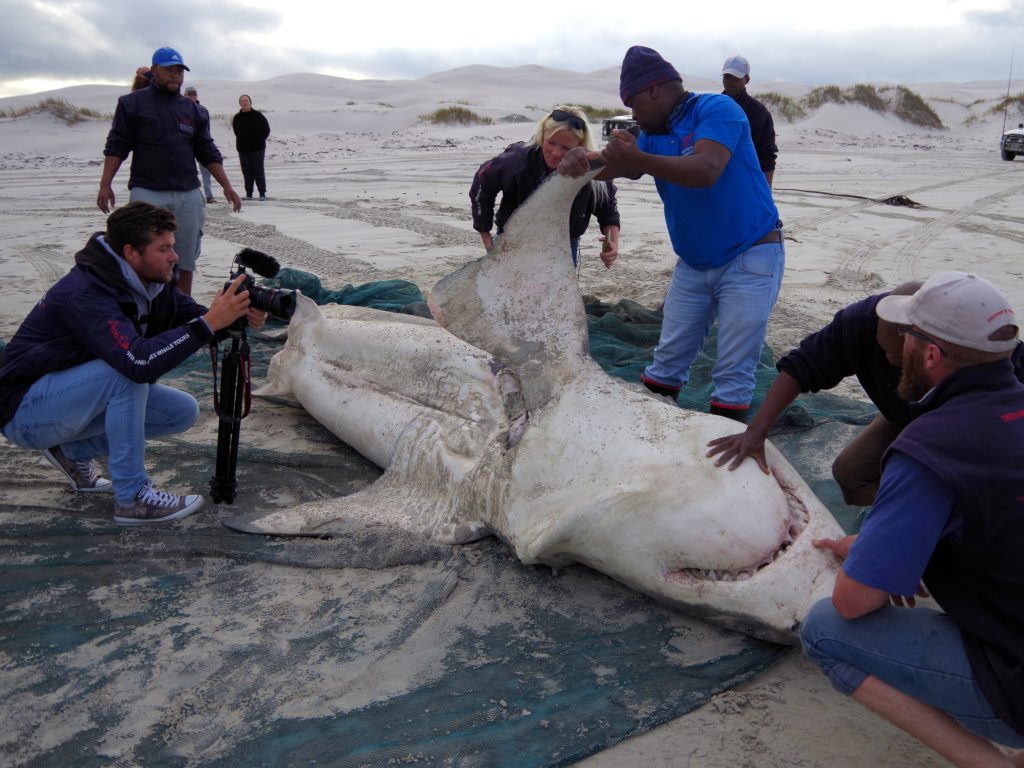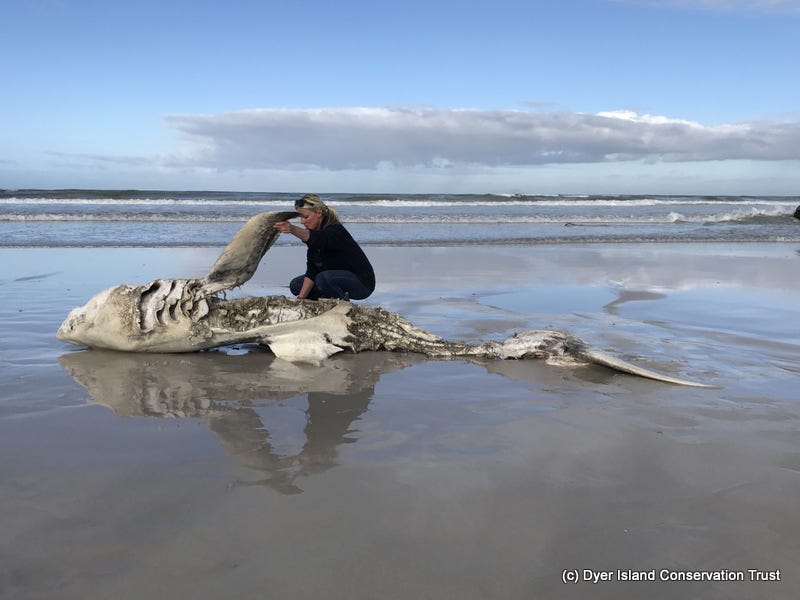- A viral video showed two whales killing great white sharks by ripping their livers out.
- The whales, called Port and Starboard, are well known among scientists, an expert said.
- They and other killer whales have long been hunting sharks for their organs, he said.
Footage of orcas killing a great white shark by snapping at its liver entranced the internet recently.
But while the video — released ahead of a Discovery+ documentary — showed such a hunt in detail an expert told Insider that it wasn't unusual.
Indeed, in the waters off South Africa, the strategy is so common that two particular killer whales have gained a reputation for organizing teams of orcas to band together and hunt great whites.
Two male orcas, called Port and Starboard, are likely to blame, said Michael Weiss, the Research Director at the Center for Whale Research.
The proof of their efforts is a series of shark carcasses washing up without livers, after being attacked by orcas with surgical precision.

Surgical strikes to target fatty organs
Per Weiss, livers are a prime target for orcas because they are fatty and give a good amount of energy in exchange for the effort required to hunt them.
"Shark livers are extremely fatty, so there's a lot of calories in there," he said.
There have been several reports documenting this behavior, for instance near the Farallon Islands in northern California. There as well, the killer whales attacked the sharks' livers.
Previous footage had shown the killer whales could tear the sharks apart by pulling at the fins around their stomach, according to a paper in the African Journal of Marine Science, which focused on sightings around South Africa.
"Their tongues and their mouths are quite dexterous, despite how big they are. They can do some pretty wild things," said Weiss.
Port and Starboard, the celebrity shark slayers
Two of the killer whales in the footage are known to scientists as Port and Starboard, following the tilt of their dorsal fins.
"They were kind of minor celebrities," said Weiss.
The pair have their own Wikipedia page. Since they started hunting in the bays of South Africa off the coast of South Africa, white shark sightings went from about 200 per year to about zero, The Guardian reported in 2020.
Weiss said that this wasn't because they killed every single shark, but because the sharks started avoiding the area.
It's not clear how the sharks have learned to avoid the orcas. Sharks have limited social interaction and it's unlikely they would have learned from one another, said Weiss.
"My thought would be it would probably be a scent thing. You smell dead shark in the water," he said.
What is clear is that this has had a knock-on effect on the environment. The academic paper showed that another species, the bronze whaler shark, had taken dominance instead.
"The ability of two animals to reshape an ecosystem is absolutely fascinating," Weiss said.

Hunting for delicacies
Weiss explains that it's not uncommon for killer whales to focus on one organ and leave the rest.
Footage has shown them eating the lips and tongues of other whales they just killed and leaving the rest. Weiss says he's also seen whales "extract fetuses from pregnant porpoises whole."
"That's kind of where the biggest bang for their buck in terms of the soft, easily accessible tissue is," he said.
"You have limited time to eat this thing. It's gonna start sinking, scavengers are gonna start showing up," he said.
Weiss said that the sharks may be able to spot the most attractive organs by using their sonar.
"The killer whales that I study, we think they're able to use echolocation to distinguish between different species of salmon by detecting the size and position of the swim bladder," he said.
"I wouldn't be surprised if that was something that was happening" with sharks, he said.
Killer males with peculiar skills
Port and Starboard are both males. They like to hunt together, a rare occurrence in the killer whale world.
"Killer whales in most populations are pretty matrilineal. Offspring hang out with their mom for most or all of their lives," said Weiss.
Weiss says it's unclear where they might have picked up the behavior. Some whales specialize in shark hunting, but the other orcas in the area don't seem to have learned this behavior.
"Most foraging strategies are passed down from mother to offspring," he said.

